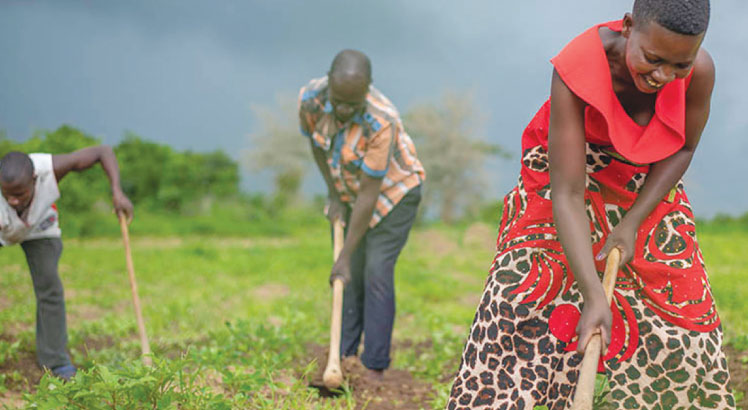Fresh amendments to the Land Laws have stirred fear and anxiety with some experts predicting doom for the economy purportedly because the new provisions have created uncertainty for investors over ownership.
In line with President Lazarus Chakwera’s directive of 2020, last year Parliament amended six land-related laws enacted in 2016 due to what the Tonse Alliance administration termed “public discontentment”.
But the new review has ended up creating fresh controversy.
Major concerns include land ceilings, re-entering undeveloped land after two years, expropriation of private land without compensation and preferential treatment accorded to indigenous Malawians over foreigners.
Estate owners, real estate agencies and Asian Business Community have also expressed reservations and the fear the laws will put them at a disadvantage.
In his analysis of the land legislation in the country done last October, land law expert Chikosa Silungwe argues that the new amendments take Malawi back to the past before the enactment of the 2016 laws which were more progressive and inspired donor confidence.
New land law provisions protect indigenous
Malawians, especially women
Reads the analysis: “The land ceiling limits that are being proposed under the draft regulations shall significantly and negatively affect the processing of the cash crops for the internal or export market.
“In the end, if the land ceiling limits are informed by a land redistribution model, then there is a need for more analysis that prioritises efficiency as opposed to land size.”
Silungwe, who is the immediate-past Attorney General, said there is need for clarity if this will also have an effect on those who already have estates above the proposed threshold of 1 000 hectares (ha).
A member of the Macademia Association, who refused to be named for fear of reprisals, said the laws have created uncertainty as they are unaware of what the future holds.
Said the farmer: “The proposed regulations put the ceiling at 1 000 hectares. What does this mean? In one estate I should have only one 1 000 or 1 000 against my name or firm? We have people with estates in different parts with different sizes.”
The 2022 amendments also empower government to re-enter undeveloped land after two years and prohibit the sale of undeveloped land.
In his analysis on the economic impact of the laws, Malawi University of Business and Applied Science associate professor of economics Betchani Tchereni observed that the law is ambiguous as it has not clearly defined what entails development to warrant re-entering of the land parcel.
He said it is not practically possible to expect everyone to develop their land within two years due to other factors which include unavailability of funding.
Tobacco Association of Malawi chief executive officer Nixon Lita in a separate interview agreed with Tchereni that sometimes there are good reasons land is left idle for some time and this should not warrant revocation.
The new amendments restrict sale of land under customary estate which can only be owned, without limit, by indigenous Malawians.
Section 52 of the Customary Land Act provides: “Any private land registered under the Registered Land Act in accordance with the Customary Land (Development) Act (repealed) and the Local Land Boards Act (repealed) shall become a customary estate and shall be administered and managed in accordance with this Act.”
But Silungwe pointed out that the other implication of this provision is that private land properly and legally registered as such loses its status as private land and becomes a customary estate.
But Centre for Environmental Policy Advocay executive director Herbert Mwalukomo supported the provisions, saying government ought to protect indigenous Malawians who risk losing land in the name of economic benefits.
He said: “Restriction in selling customary land helps Malawians to have something to hold on to. Land is culture. We do not need to have a case where Malawians become landless.
“Foreigners for their financial muscle already have an upper hand. We do not have to wake up one day where the whole land is gone to foreigners.”
On the other hand, Lilongwe University of Agriculture and Natural Resources agriculture economist Dr. Henry Kamkwamba proposed a middle-way which would allow Malawians to own land they can lease to foreigners to have a win-win situation.
Former minister of Lands Atupele Muluzi, who was the line minister during the 2016 enactment, said the amendments have come rather too early even before the laws were fully piloted to draw important lessons.
He described the amendments as a case of populism, saying: “Land reform is a very complex, sensitive and emotive matter. Government may have rushed with the amendments and populism may have been considered over evidence. The amendments of 2022 can negatively impact on Malawi’s growth and development.”
In his statement in Parliament on June 8 2017, Muluzi spoke highly of the land laws, saying they were a game-changer to Malawi’s development trajectory.
The implementation process of the 2016 laws had the support of major donors such as World Bank, Food and Agriculture Organisation (FAO) and European Union (EU) who seemed excited with the land reform programme which started in 1996.
In 2016, Parliament approved a list of 10 land-related laws, but the opposition, especially Malawi Congress Party (MCP) led by Chakwera, walked out of the House in protest during debate.
Soon after taking over power in 2020, Chakwera directed that the house should immediately review these laws, saying the 2016 laws had brought about discontentment and hard errors because they were rushed.
The enactment of the 2016 laws came after years of discussions which stated in 1996 after former president Bakili Muluzi set up a presidential commission of inquiry on Land Policy reform which culminated in the land policy in 2002.
The post Land laws stir panic first appeared on The Nation Online.
 Moni Malawi
Moni Malawi 

